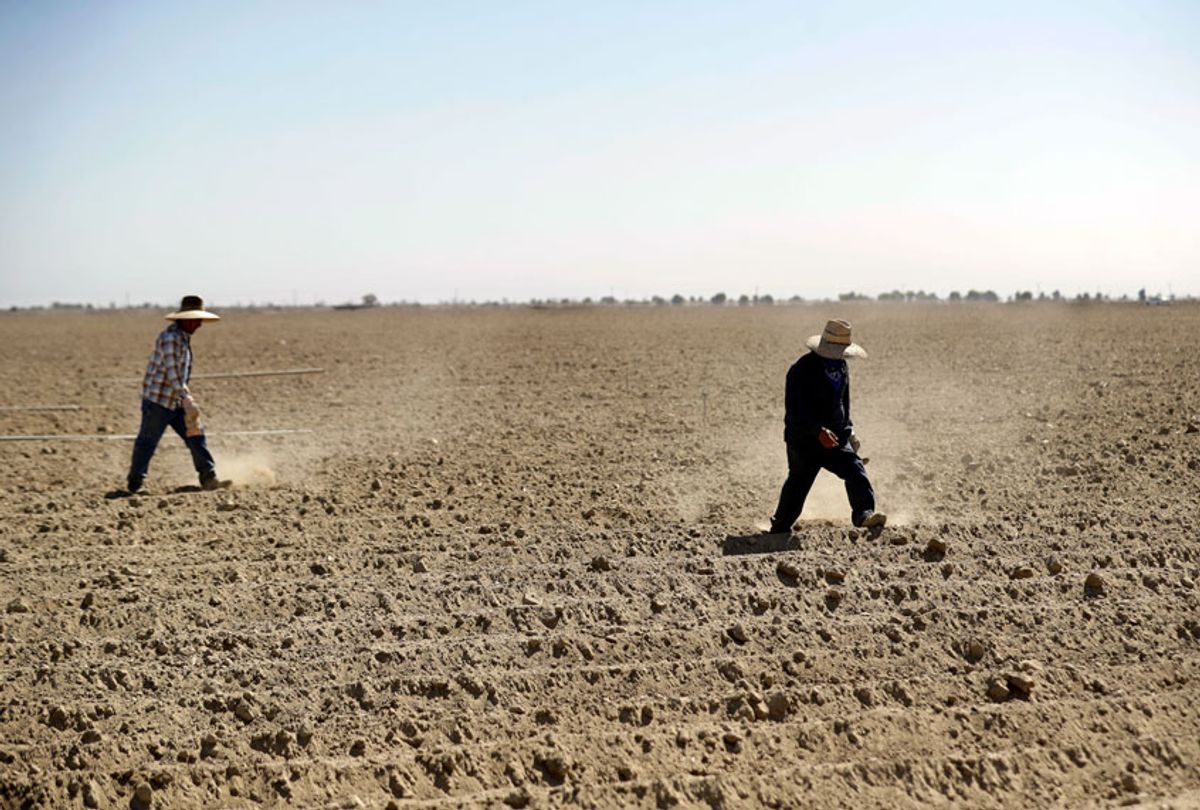It’s been over a week since the wildfires started in Butte County, California, and they still have yet to be contained, leaving 63 dead and over 600 people missing as of Friday. Meanwhile, in the San Francisco Bay Area and near Sacramento, residents are seeking shelter indoors as a result of "very hazardous" air quality from the drifting smoke. Friday marked a new low for air quality in Oakland and San Francisco, as both cities gained the distinction of having the worst air quality in the world, according to Lawrence Berkeley National Labs. The average ranking of particulate matter air pollution in these cities exceeded the most polluted cities in India and China.
While being outside is hazardous for one's health, different kinds of workers are affected differently by the smoke — and in the notoriously income-unequal Bay Area, the gulf between white collar and blue collar work is made more pronounced by the different ways that the toxic air quality affects workers.
Many tech companies in Silicon Valley responded to the hazardous air by giving their employees an option to work from home for a “smoke day.” Uber's San Francisco offices provided employees with masks in the building lobby. At Lyft, employees were encouraged to stay at home today, too.
Yet on the outskirts of the Bay Area, farmers and agricultural workers don't have that option. Many have to go to work outside and breathe the toxic smoke fumes while engaging in manual labor, despite warnings from city officials that people in areas where the air quality is unhealthy to stay inside. But considering California’s Central Valley is one of the most prosperous agricultural regions in the world, a pause on labor wouldn’t bode well with suppliers and big businesses.
“Farm work is always a difficult and dangerous job, but during wildfires many farm workers have to work in hazardous smoke conditions without masks, and they are doing really heavy manual labor like 8 to 10 hours a day and breathing heavily, and breathing in smoke and toxic materials,” Lucas Zucker the Policy and Communications Director of the Central Coast Alliance United for a Sustainable Economy (CAUSE), told Salon.
The Division of Occupational Safety and Health advises employers to provide workers with N95 protective masks if the air quality reaches harmful or hazardous conditions, but farm workers often have to work without protection for a variety of reasons.
“The agriculture industry is big and global supply chains have a lot of layers of contracting, so you can have a distributor at the top say we want to get masks for all of our workers, but they’ve contracted to a medium-sized farm where the owners are far away from the field and they are in an office,” Zucker said. “There can be communication barriers.”
Another reason is that the culture of work in agriculture is that “the work needs to get done no matter what,” he said.
“The reality is most workers even though they might not be required to work during the smoke, even if they have a choice, if they lost that work then they lose critical income to survive and support their families,” he said. “Many are undocumented immigrants and they are excluded from disaster relief aide.”
“It’s pretty common for farms to continue to have their workers go on, they have contracts to meet with distributors and they need to make sure they get their crops in,” he added.
There is perhaps nothing quite like a natural disaster to emphasize class inequality in America: from Hurricane Maria to this week’s California wildfires. As Robert Raymond wrote in the Huffington Post as a response to celebrities hiring private firefighters to save their homes from the Woosley Fire, “under capitalism, wealth has always been a determining factor for life outcomes.” This is usually always the case, but can be best observed in the middle of a crisis.
Raymond concludes: “The ultimate realization we are compelled to confront, in the face of private firefighting in Hidden Hills, is one that has plagued class society from its inception. It is a dark and uncomfortable realization, but it is nonetheless threaded through almost all aspects of class society. If we are OK with the wealthy having access to forms of disaster protection that are unavailable to the poor, then we’d have to admit that we, as a society, believe the life of a rich person is worth more than the life of a poor person.”
Meanwhile, as Silicon Valley enjoys its smoke day, the workers who produce most of the country's food will continue to work away in the fields, harvesting the produce that Silicon Valley enjoys next week.

Shares